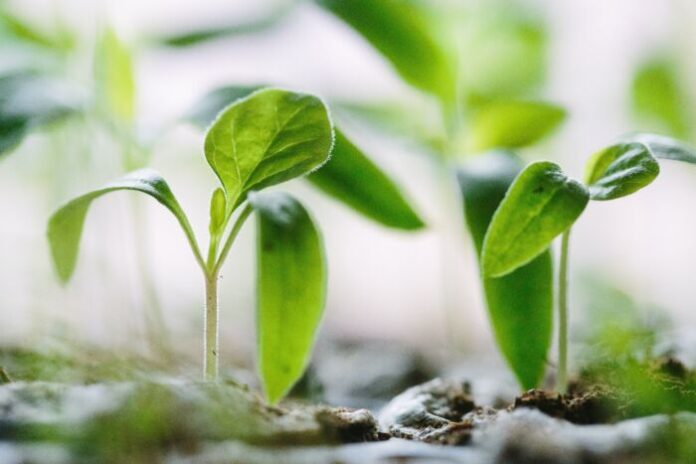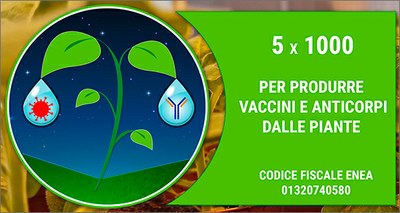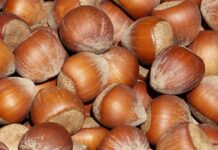
The Agency for New Technologies, Energy and Sustainable Economic Development has decided to allocate the funds collected from tax returns to the creation of a Centre of Excellence for the production of biopharmaceuticals and vaccines through an innovative platform ‘Plant Molecular Farming’, able to meet national demand in a short time and with investments significantly lower than those required for traditional plants for the synthesis of biopharmaceuticals. To donate your 5 per thousand in 2021 to ENEA’s Plant Molecular Farming Project, simply sign the box for funding scientific research on your tax return, indicating the tax code ENEA: 01320740580.
The project is based on a set of advanced biotechnologies involving the use of ‘intelligent’ plants which, when properly trained, are able to carry out the synthesis of bioactive molecules. In effect, the plant becomes one of the cheapest and easiest biological systems to produce these high-value molecules, simply by using light, water and nutrients. According to the estimates of the study ‘Plant Molecular Farming as a Strategy Against COVID-19 – The Italian Perspective’, a greenhouse of 12,500 square metres or a vertical farming facility of only 2,000 square metres would be able to meet the entire annual Italian demand for biotherapeutics (vaccines, antibodies) and diagnostics. In these facilities it would also be possible to produce antibodies to be used for mass diagnostic screening, passive immunotherapy and vaccination against COVID-19 and possible new pandemics.
“There has been a lot of progress in the field of Plant Molecular Farming at international level, while in Italy, unfortunately, investments in this sector are still scarce, despite the very promising results already obtained,” says Eugenio Benvenuto, head of ENEA’s Biotechnology Laboratory. “This is why we are proposing to allocate funds from the 5×1000 tax to this activity and to raise public awareness of the contribution that Italian research can make. At ENEA, but we are not the only ones in Italy, we have infrastructures, skills, and know-how that have been built up in over 25 years of activity and are also recognised abroad. Moreover, through technology transfer we have demonstrated the feasibility of the technology to a number of Italian pharmaceutical companies that have recently entered the green biotechnology sector,” concludes Benvenuto.

Examples of drugs made abroad using this technology include a vaccine against the seasonal flu virus and another being tested against SARS-CoV-2, both based on Virus Like Particles (VLPs), virus-mimicking particles that can activate the immune response but are completely harmless from an infectious point of view.
For further information:
Study ENEA, University of Verona and Viterbo, CNR and ISS “Plant Molecular Farming as a Strategy Against COVID-19 – The Italian Perspective” published in the international journal “Frontiers in Plant Science” https://www.frontiersin.org/articles/10.3389/fpls.2020.609910/full
Recent study on vaccines against SARS-CoV-2 obtained from plants
https://www.nature.com/articles/s41591-021-01370-1






































